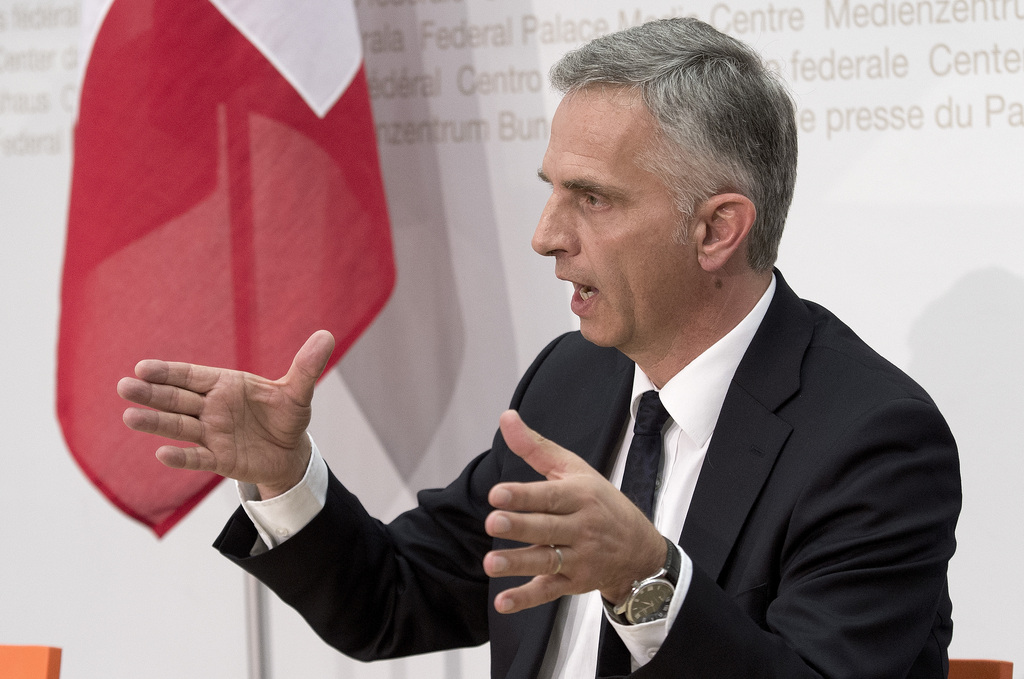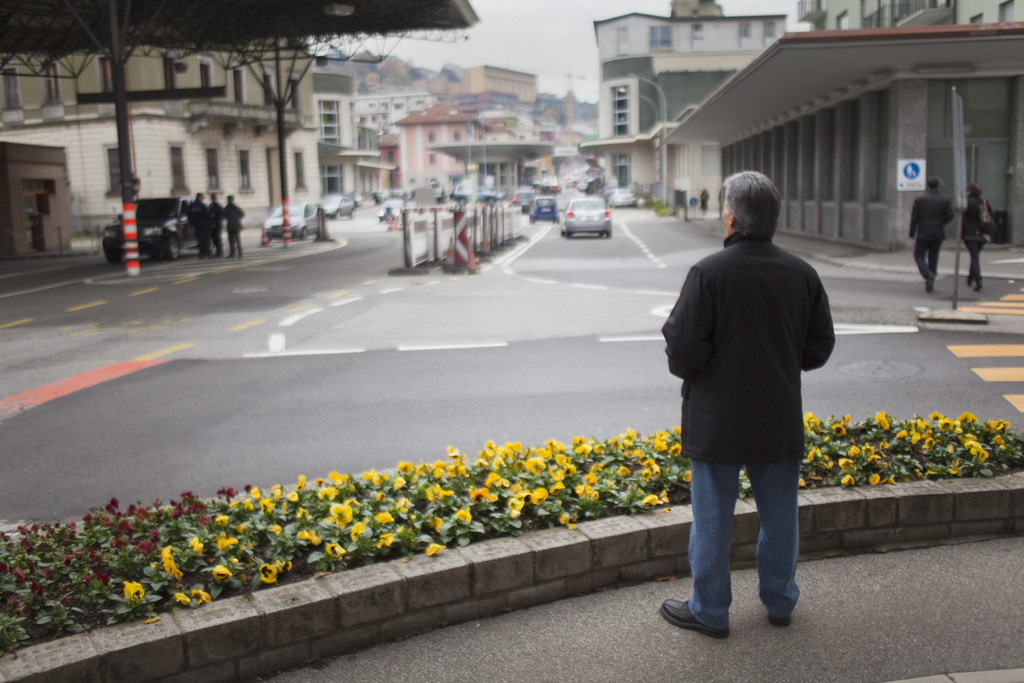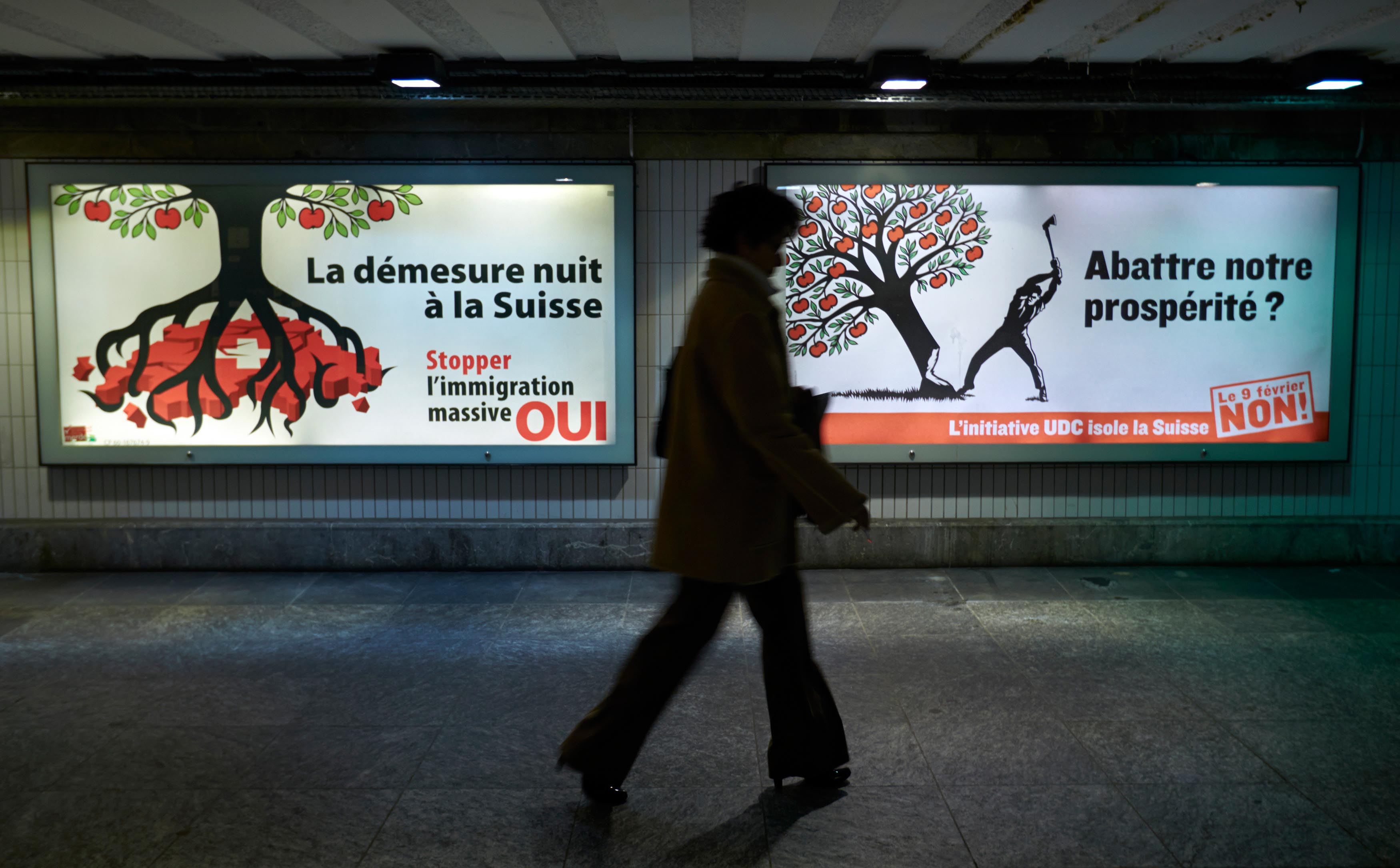Cabinet calls for calm after immigration vote

President Didier Burkhalter has appealed for national unity and calm following Sunday’s historic decision by voters to curb immigration. He outlined the next steps for talks with the European Union to assess the impact on bilateral relations with Brussels.
He said many questions remained open just three days after the ballot. In a bid to halt speculation and allay public concerns, Burkhalter acknowledged the situation was difficult for the government, but he warned against over-reacting in any way.
“The reaction of the EU is hardly a surprise, the risk of a yes-vote to the initiative was known,” he told a news conference following Wednesday’s cabinet meeting.
Brussels has made it clear it is not willing to accept immigration quotas. It suspended talks on a new electricity accord and agreements on research and education appear to be in jeopardy.
Other treaties, notably on the European single border, taxation of savings, trade and transport might also be affected.
Burkhalter called on all sides in Switzerland to respect the outcome of the close result – less than 20,000 votes made the difference in Sunday’s ballot – but also to take into account the feelings of distress and fear among the population.
The political right and left have traded accusations with the People’s Party strongman Christoph Blocher implying that a majority of voters in the French-speaking part of the country are unpatriotic because the rejected the initiative, while the left asked for immigration quotas to be applied more strictly in regions where a majority came out in favour.
Seeking to assure EU foreigners living in Switzerland and Swiss expats living in EU member countries, Burkhalter said the status quo would prevail for the next three years.
“There won’t be any immediate changes. Those who have benefited from the free movement accord would not lose their current status even if the agreement were cancelled,” he said.
Didier Burkhalter
There won’t be any immediate changes. Those who have benefited from the free movement accord do not lose their status.
Exploratory talks
A senior Swiss delegation, led by state secretary in the foreign ministry, Yves Rossier, is travelling to Brussels next week for exploratory talks.
Burkhalter, who holds the foreign affairs portfolio in the Swiss government, is himself expected to meet Germany’s Chancellor Angela Merkel and other members of the government in Berlin next Tuesday. He also hopes to travel to other neighbouring states in the near future.
Burkhalter said the aim is avoid a ‘domino effect’, the unravelling of further key accords between Switzerland and the EU.
The cabinet plans to draw up a strategy to implement the new rules by the end of June. A bill for parliament to approve is expected by the end of this year, so that the quota system can come into force by February 2017. Voters might still be asked to have the final word on the legal amendment.

More
Ticino says ‘basta!’ to cross-border workers
Barroso
Switzerland stands to lose more than the EU from a vote to restrict immigration because it cannot enjoy all the benefits of the world’s biggest market without reciprocal access, European Commission President José Manuel Barroso said.
Barroso told the Reuters news agency that the narrow Swiss vote to restore quotas for migrants in breach of an agreement with the EU, would have “serious consequences” for bilateral relations.
He did not spell out any specific sanctions, but he implied that Swiss people could lose the right to live and work in the EU, including neighbouring Germany, France and Italy, and Swiss companies might also face obstacles.
“In terms of reciprocity, it’s not appropriate that Swiss citizens have unrestricted freedom of movement in the EU – I think there are 430,000 here, which in relative terms is more than the one million European citizens that are in Switzerland,” he said.
Switzerland has a population of eight million, including 24% foreigners, while the EU has 500 million.
“It’s not fair that one country has all these advantages and does not want to give partners the same kind of advantages,” Barroso said.
The deal on the free movement of people between Switzerland and the EU came into force in 2002 and is a key element of the first package of bilateral accords between the two parties.
Under the deal, nationals of Switzerland and EU member states are entitled to choose their place of work and residence within the territories of the signatories.
The Swiss electorate has voted three times so far on the free movement of people.
In May 2000, it approved a first bilateral package and with it the free movement accord by a large majority. In 2005 and 2009, voters approved the extension of the treaty to new EU member countries, mostly in eastern Europe.
Burden on Switzerland
It was up to the Swiss government to find a way to turn Sunday’s vaguely worded decision into law while respecting its agreements with the EU, he added.
“In relative terms you can understand that it’s certainly more important for Switzerland to have access to this market, which is the biggest market in the world, than for the EU to have access to Switzerland, which is a very important country.”
In the same vein, EU ambassador to Switzerland, Richard Jones categorically ruled out that Brussels would be willing to discuss immigration caps.
Asked about the future of bilateral relations between Switzerland and the EU, Jones told Swiss public radio, SRF: “A huge amount of the burden is on our Swiss partners now.”

In compliance with the JTI standards
More: SWI swissinfo.ch certified by the Journalism Trust Initiative











You can find an overview of ongoing debates with our journalists here . Please join us!
If you want to start a conversation about a topic raised in this article or want to report factual errors, email us at english@swissinfo.ch.